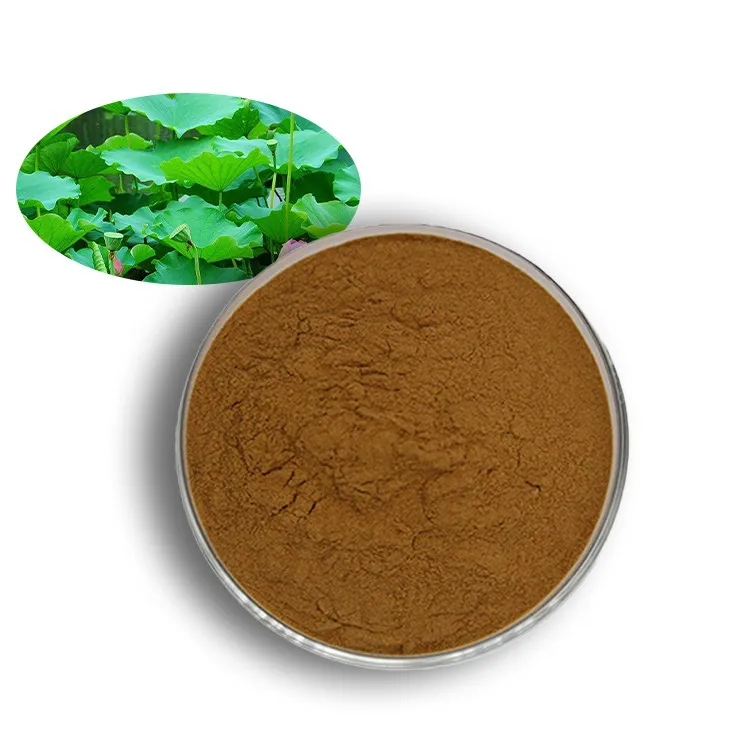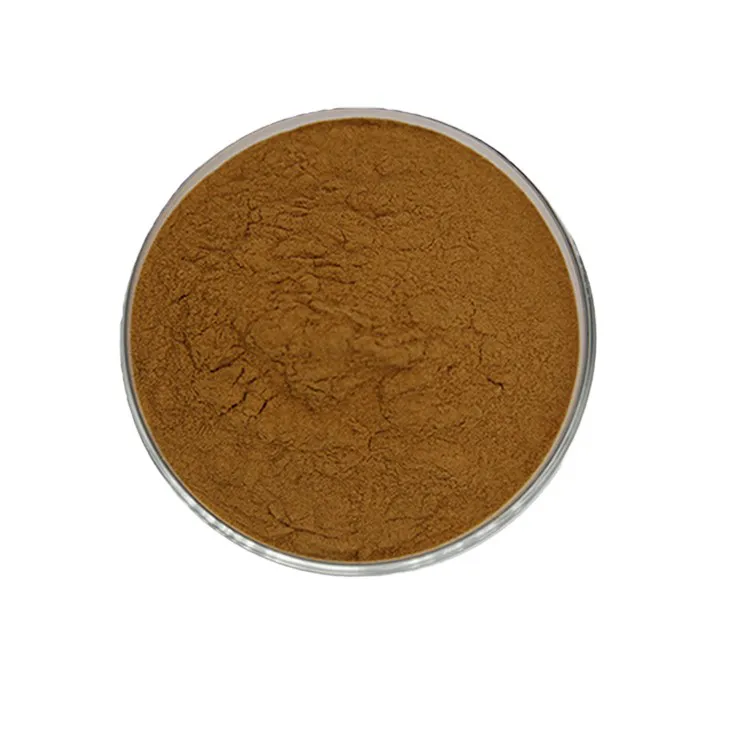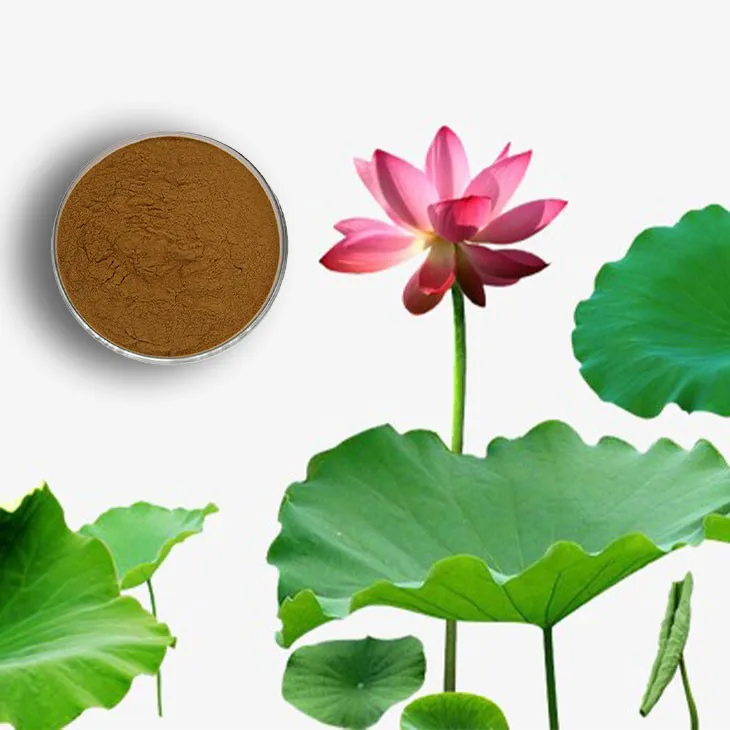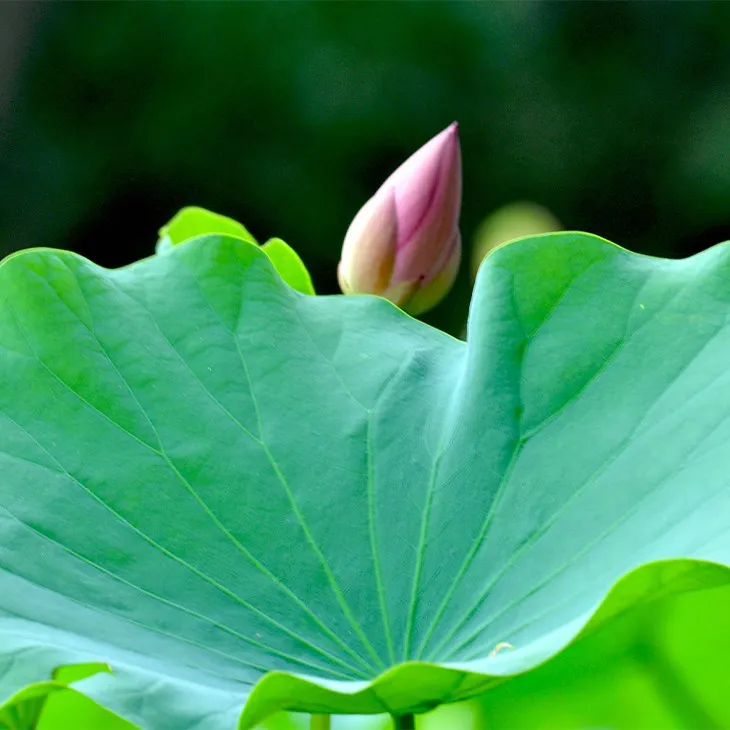- 0086-571-85302990
- sales@greenskybio.com
The Best Herbs for Treating Anxiety and Insomnia: Lotus Leaf Extract.
2024-11-13

Introduction
In modern society, anxiety and insomnia have become prevalent issues affecting a large number of people. These conditions not only impact one's mental state but also have consequences on physical health. Fortunately, nature has provided us with various remedies, and Lotus leaf extract is emerging as a particularly promising solution.

How Lotus leaf extract Works on Anxiety
1. Calming the Over - active Nervous System
The nervous system plays a crucial role in our response to stress and anxiety. In cases of anxiety, the nervous system often becomes over - active. Lotus leaf extract has the ability to calm this over - active nervous system. It interacts with the nerve cells, modulating their activity levels. This modulation helps in reducing the excessive firing of nerve impulses that are often associated with feelings of anxiety.2. Acting on Multiple Physiological Pathways
- One of the pathways through which lotus leaf extract exerts its anti - anxiety effect is by influencing neurotransmitter levels. Neurotransmitters such as serotonin and dopamine are important regulators of mood. Lotus leaf extract may help in maintaining the proper balance of these neurotransmitters, which is essential for a stable mood and reduced anxiety.
- It also has an impact on the hormonal system. Stress hormones like cortisol are often elevated in individuals with anxiety. The extract may play a role in regulating cortisol levels, preventing the excessive release of this stress - inducing hormone.

The Impact of Lotus Leaf Extract on Insomnia
1. Regulating the Sleep - Wake Cycle
The human body has an internal clock known as the circadian rhythm, which regulates the sleep - wake cycle. Disruptions to this cycle can lead to insomnia. Lotus leaf extract has been found to have a positive impact on this cycle. It helps in resetting and normalizing the circadian rhythm, making it easier for individuals to fall asleep and stay asleep throughout the night.2. Reducing Stress - related Sleep Disturbances
Stress is a major contributor to insomnia. As mentioned earlier, lotus leaf extract can reduce stress levels by acting on the nervous and hormonal systems. By alleviating stress, it also reduces the likelihood of stress - related sleep disturbances. This means that individuals who take lotus leaf extract may experience fewer nights of tossing and turning due to stress - induced thoughts and physiological arousal.
The Nutritional Composition of Lotus Leaf Extract
1. Rich in Antioxidants
Antioxidants are substances that help protect the body from damage caused by free radicals. Free radicals are unstable molecules that can cause oxidative stress, which is linked to various health problems including anxiety and insomnia. Lotus leaf extract is rich in antioxidants such as flavonoids and phenolic compounds. These antioxidants scavenge free radicals in the body, reducing oxidative stress and promoting overall health.2. Other Beneficial Substances
- It also contains alkaloids, which have been studied for their potential effects on the nervous system. These alkaloids may contribute to the calming effect of lotus leaf extract on the over - active nervous system.
- Vitamins and minerals present in the extract, although in small amounts, also play a role in maintaining the normal functioning of the body. For example, certain vitamins are involved in neurotransmitter synthesis, which is relevant to its effects on anxiety and insomnia.

Lotus Leaf Extract as Part of a Holistic Approach
1. Incorporating Lifestyle Changes
While lotus leaf extract can be effective in treating anxiety and insomnia, it is important to note that it is most beneficial when used as part of a holistic approach. Lifestyle changes play a crucial role. For example, regular exercise has been shown to reduce anxiety and improve sleep quality. Exercise helps in releasing endorphins, which are natural mood - boosters, and also tires the body, making it easier to fall asleep at night.2. Stress Management
- Stress management techniques such as meditation and deep breathing are also important. Meditation helps in focusing the mind and reducing the mental chatter that often accompanies anxiety. Deep breathing relaxes the body and activates the parasympathetic nervous system, which is responsible for the "rest and digest" response.
- Another aspect of stress management is maintaining a balanced diet. Avoiding excessive caffeine and sugar intake, especially close to bedtime, can help improve sleep. Additionally, consuming foods rich in nutrients like omega - 3 fatty acids and magnesium can support mental health.
Conclusion
In conclusion, lotus leaf extract shows great potential as a natural remedy for anxiety and insomnia. Its ability to act on multiple physiological pathways related to these conditions, along with its rich nutritional composition, makes it a valuable addition to the treatment options. However, it should be remembered that it is part of a holistic approach that also includes lifestyle changes and stress management. As research in this area continues, we can expect to gain a more in - depth understanding of the mechanisms through which lotus leaf extract exerts its beneficial effects, and how it can be best utilized in the treatment of anxiety and insomnia.
FAQ:
How does lotus leaf extract calm the over - active nervous system?
The exact mechanism through which lotus leaf extract calms the over - active nervous system is not fully understood. However, it is believed that the antioxidants and other bioactive substances in the extract may interact with neurotransmitters or receptors in the nervous system. These interactions could potentially regulate the firing rate of neurons and reduce excessive neural activity, thereby calming the nervous system.
Can lotus leaf extract completely cure anxiety?
Lotus leaf extract is not likely to completely cure anxiety on its own. While it can be a helpful part of a treatment plan, anxiety is a complex disorder that often has multiple causes such as genetic factors, environmental stressors, and psychological factors. Using lotus leaf extract is more about managing the symptoms and promoting a sense of calm, but it should be combined with other approaches like psychotherapy, lifestyle changes, and in some cases, medical treatment.
How does lotus leaf extract affect the sleep - wake cycle in cases of insomnia?
Lotus leaf extract may affect the sleep - wake cycle in insomnia by influencing the body's internal clock mechanisms. It could potentially regulate the production and release of hormones related to sleep, such as melatonin. Also, its calming effect on the nervous system may reduce the hyper - arousal that often prevents people from falling asleep or staying asleep, thus helping to normalize the sleep - wake cycle.
Are there any side effects of using lotus leaf extract for anxiety and insomnia?
Currently, there is not a great deal of research on the side effects of using lotus leaf extract specifically for anxiety and insomnia. However, in general, some people may experience mild gastrointestinal discomfort like nausea or diarrhea. Since herbal products can interact with medications or have different effects in people with underlying health conditions, it is important to consult a healthcare provider before using lotus leaf extract.
How should lotus leaf extract be taken for treating anxiety and insomnia?
The appropriate way to take lotus leaf extract for anxiety and insomnia can vary. It may be available in different forms such as capsules, tinctures, or teas. Dosage recommendations also depend on factors like age, overall health, and the severity of the condition. It is crucial to follow the instructions provided by a healthcare professional or the product manufacturer.
Related literature
- The Efficacy of Herbal Remedies in Anxiety Disorders: A Comprehensive Review"
- "Herbal Interventions for Insomnia: Current Research and Future Directions"
- "Lotus Leaf Extract: Chemical Composition and Potential Health Benefits"
- ▶ Hesperidin
- ▶ citrus bioflavonoids
- ▶ plant extract
- ▶ lycopene
- ▶ Diosmin
- ▶ Grape seed extract
- ▶ Sea buckthorn Juice Powder
- ▶ Beetroot powder
- ▶ Hops Extract
- ▶ Artichoke Extract
- ▶ Reishi mushroom extract
- ▶ Astaxanthin
- ▶ Green Tea Extract
- ▶ Curcumin Extract
- ▶ Horse Chestnut Extract
- ▶ Other Problems
- ▶ Boswellia Serrata Extract
- ▶ Resveratrol Extract
- ▶ Marigold Extract
- ▶ Grape Leaf Extract
- ▶ blog3
-
High purity olive leaf extract
2024-11-13
-
Lavender oil extraction method
2024-11-13
-
100% organic virgin sea buckthorn fruit oil
2024-11-13
-
Lotus leaf extract powder factory in China
2024-11-13
-
China aged garlic extract supplier
2024-11-13
-
Deer antler extract powder manufacturer
2024-11-13
-
Saw palmetto extract vs whole herb
2024-11-13
-
Shikonin
2024-11-13
-
Kupilu Extract
2024-11-13
-
Berberis aristata Extract
2024-11-13
-
Red Vine Extract
2024-11-13
-
Diosmin
2024-11-13
-
Stevia Extract
2024-11-13
-
Mulberry Extract
2024-11-13
-
Green Tea Extract
2024-11-13
-
Yohimbine Bark Extract
2024-11-13
-
Calendula Extract
2024-11-13





















